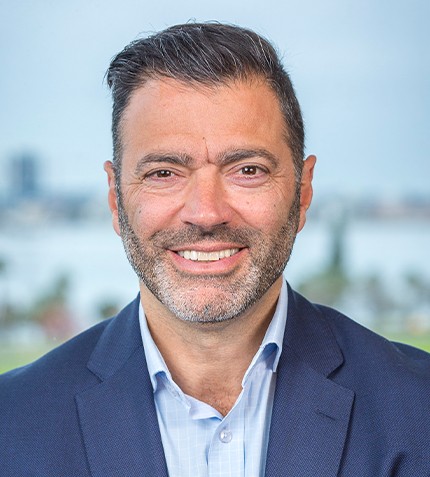
"Oil production in Angola has been on a declining trend over the past few years, but our discoveries have bucked this trend with the company’s production increasing by 30% from 2022 to 2024."
Katrina Fisher
LEAD COUNTRY MANAGER, EXXONMOBIL ANGOLA
Can you give an overview of ExxonMobil and the company’s presence in Angola?
ExxonMobil has a proud history in Angola and will celebrate 30 years of the Block 15 production-sharing contract in August 2024. We have six facilities in Block 15 and delivered five FPSOs in six years when we brought the development online, one of the fastest timelines in West Africa and the industry. In addition to Block 15, we are partners in Block 17 and Block 32 operated by TotalEnergies. In 2020, ExxonMobil was awarded operatorship of three frontier blocks in the Namibe Basin: Block 30, Block 44, and Block 45. In the 30 years ExxonMobil has operated in Angola, we have invested approximately US$30 billion towards these developments, built a strong foundation, cemented by our commitment to safety, and a capable workforce that delivers value to all stakeholders. ExxonMobil continues to be a significant contributor to the Angolan economy, and we are proud to operate a diverse set of assets and will continue to work with the Angolan government on increasing our footprint.
Can you elaborate on ExxonMobil’s exploration strategy and the opportunities you see in Angola?
In March 2024, ExxonMobil made our 19th commercial discovery in Block 15 with the Likembe-01 prospect, the second discovery in an ongoing redevelopment program that started in 2022 following an extension of the Block 15 PSC in 2019. We continue to explore in and around Block 15 to further add value to those assets and have been focused on our existing infrastructure as we look for opportunities to grow our production. We are preparing to start exploration in the Namibe Basin and will drill the first exploration well, Arcturus 1, within the next few months.
What has been ExxonMobil’s production performance in Angola of late?
In November 2023, ExxonMobil celebrated its 20th year of production from Block 15 where we have produced over 2.5 billion barrels to date. We are now moving towards the tail end of the 18 well, 2 rig redevelopment program that we have been executing since 2022 and have seen the Bavuca South and Likembe discoveries made amid that program. Oil production in Angola has been on a declining trend over the past few years, but our discoveries have bucked this trend with the company’s production increasing by 30% from 2022 to 2024. We continue to grow capability with our redevelopment program and look to further expand that as we follow up on the successes in exploration we have had. We are focused on ensuring the safety and integrity of our assets, and we are investing in our infrastructure to ensure that we have that reliability to continue to deliver and meet our targets.
What are some of the challenges operators face that contribute to Angola’s declining oil production?
The oil and gas industry in general is a competitive environment, and majors such as ExxonMobil that have a global portfolio of opportunities, have to stack them against each other and choose the more competitive opportunities. In recent years, the Angolan government has been focused on the competitiveness of the country’s opportunities in the global oil and gas marketplace and is putting in the effort to increase investor confidence. ExxonMobil has the benefit of existing infrastructure in Angola, and we want to ensure that we make the most of this infrastructure and leverage it to the advantage of stakeholders, and to continue to develop opportunities.
How does ExxonMobil fit into Angola’s energy transition strategy?
Energy transition can mean different things for different countries, and in a country such as Angola where energy security is being built, the transition can mean moving from not having energy to having energy, allowing for the further development of resources in a responsible way. Angola is trying to meet both challenges of having the lowest carbon footprint that it can, but also ensuring energy security for Angolans.
How can the energy industry be more inclusive to women, particularly in senior positions?
We have come a long way in supporting women in the industry, but we still need to ensure that we have supportive networks and programs that help women balance all the things happening in their lives and allow them to succeed.










